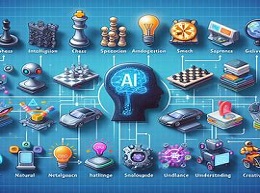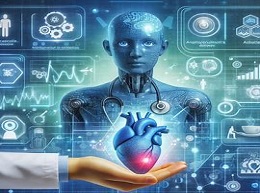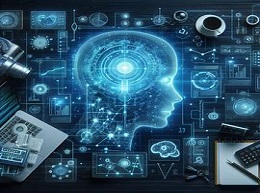AI in Healthcare: Transforming the Future of Medicine

Artificial intelligence (AI) is reshaping the landscape of healthcare, ushering in a new era of innovation and transformation. From improving diagnostic accuracy to personalizing treatment plans, AI holds immense potential to revolutionize the way healthcare is delivered. In this article, we'll delve into the various applications of AI in healthcare and examine how it is shaping the future of medicine.
AI in Medical Imaging
Enhancing Diagnostic Accuracy
AI-powered medical imaging technologies, such as computer-aided detection (CAD) systems, are revolutionizing diagnostic processes. These systems analyze medical images, such as X-rays, MRIs, and CT scans, to identify abnormalities and assist healthcare professionals in making accurate diagnoses.
Example: Deep learning algorithms can analyze mammograms to detect early signs of breast cancer with high accuracy, potentially improving survival rates through early intervention.
Personalized Medicine
Tailoring Treatment Plans
AI algorithms can analyze vast amounts of patient data, including genetic information, medical history, and lifestyle factors, to develop personalized treatment plans. By considering individual variations and predicting treatment outcomes, AI enables healthcare providers to deliver more targeted and effective interventions.
Example: Oncologists can use AI-driven predictive models to identify optimal cancer treatments based on a patient's genetic profile, tumor characteristics, and previous treatment responses.
Virtual Health Assistants
Improving Patient Engagement
Virtual health assistants powered by AI, such as chatbots and voice-enabled devices, are transforming patient engagement and healthcare delivery. These assistants provide personalized health information, answer patient queries, schedule appointments, and even monitor vital signs remotely, enhancing accessibility and convenience for patients.
Example: Health insurance companies deploy AI chatbots to assist members in understanding their coverage, finding healthcare providers, and accessing telemedicine services, improving overall customer satisfaction.
Drug Discovery and Development
Accelerating Research
AI-driven platforms are revolutionizing the drug discovery and development process by accelerating research, predicting drug interactions, and identifying potential targets for new therapies. Machine learning algorithms analyze vast datasets to uncover patterns and insights that guide the design and optimization of novel pharmaceuticals.
Example: Researchers use AI algorithms to analyze genomic data and identify potential drug targets for rare genetic diseases, expediting the discovery of targeted therapies.
Predictive Analytics
Preventive Healthcare
AI-powered predictive analytics models analyze patient data to identify individuals at risk of developing certain conditions or experiencing adverse health outcomes. By proactively identifying risk factors and intervening early, healthcare providers can implement preventive measures to improve patient outcomes and reduce healthcare costs.
Example: Hospitals utilize predictive analytics algorithms to forecast patient admission rates, optimize resource allocation, and reduce emergency department overcrowding, enhancing operational efficiency and patient care.
Ethical Considerations
Ensuring Patient Privacy and Data Security
As AI becomes increasingly integrated into healthcare systems, it raises ethical concerns regarding patient privacy, data security, and algorithm bias. Healthcare organizations must prioritize ethical considerations, such as informed consent, data anonymization, and algorithm transparency, to ensure patient trust and compliance with regulatory requirements.
Example: Researchers develop AI algorithms that are trained on diverse and representative datasets to mitigate algorithm bias and ensure equitable healthcare outcomes for all patient populations.
Artificial intelligence is transforming the future of medicine, revolutionizing how healthcare is delivered, from diagnosis to treatment to patient engagement. By harnessing the power of AI-driven technologies, healthcare providers can improve diagnostic accuracy, personalize treatment plans, accelerate drug discovery, and enhance preventive healthcare strategies. However, as AI continues to evolve and integrate into healthcare systems, it is essential to address ethical considerations and ensure patient privacy and data security remain paramount. With responsible implementation and ongoing innovation, AI has the potential to revolutionize healthcare, improving patient outcomes and shaping the future of medicine for generations to come.













